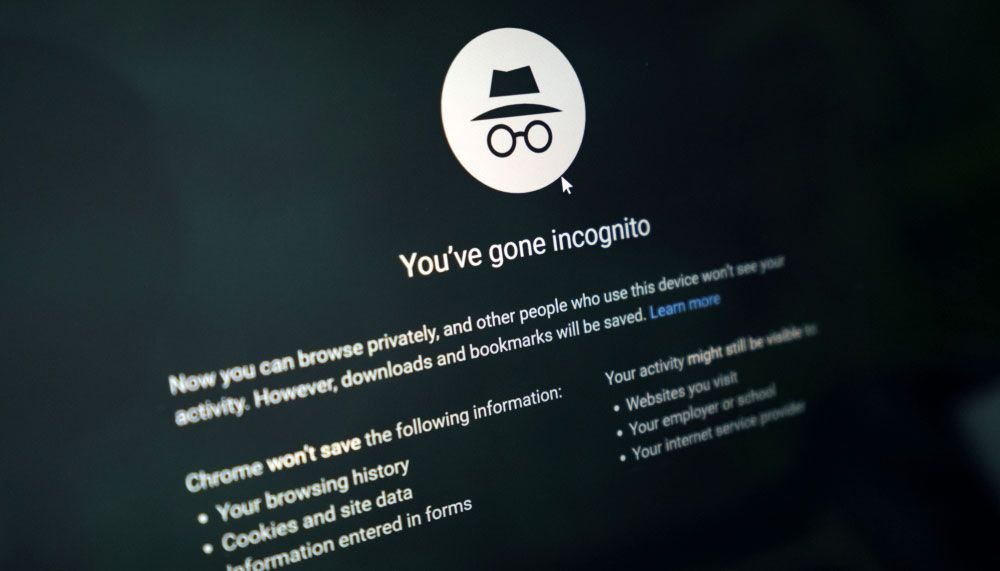Texas Attorney General Ken Paxton claimed that the Google search engine collects data on those who use a "private browsing" mode, according to the amended privacy lawsuit it filed against the Alphabet Inc. unit.
Other than Texas, Indiana, Washington State, and the District of Columbia filed separate suits against Google in January in state courts over what they claim are deceptive location-tracking practices that invade the privacy of users who think they can be anonymous.
Incognito mode or “private browsing” is a web browser function that Paxton said implies Google will not track search history or location activity.
According to the lawsuit, Google provides the option of "private browsing," which could include "viewing highly personal websites that might indicate, for example, their medical history, political persuasion, or sexual orientation," or "buying a surprise gift without the gift recipient being tipped off by a barrage of targeted ads."
According to the lawsuit, Google collects a variety of personal data even while a user is using Incognito mode.
In January, Google said that the attorneys general are bringing a case based on inaccurate claims and outdated assertions about their settings. It added that they have always built privacy features into their products and provided robust controls for location data.
Paxton previously claimed that Google misled customers by continuing to track their whereabouts even after they requested that it not be done.



 CK Hutchison Unit Launches Arbitration Against Panama Over Port Concessions Ruling
CK Hutchison Unit Launches Arbitration Against Panama Over Port Concessions Ruling  Fed Governor Lisa Cook Warns Inflation Risks Remain as Rates Stay Steady
Fed Governor Lisa Cook Warns Inflation Risks Remain as Rates Stay Steady  Global Markets Slide as AI, Crypto, and Precious Metals Face Heightened Volatility
Global Markets Slide as AI, Crypto, and Precious Metals Face Heightened Volatility  New York Judge Orders Redrawing of GOP-Held Congressional District
New York Judge Orders Redrawing of GOP-Held Congressional District  Gold and Silver Prices Slide as Dollar Strength and Easing Tensions Weigh on Metals
Gold and Silver Prices Slide as Dollar Strength and Easing Tensions Weigh on Metals  Panama Supreme Court Voids Hong Kong Firm’s Panama Canal Port Contracts Over Constitutional Violations
Panama Supreme Court Voids Hong Kong Firm’s Panama Canal Port Contracts Over Constitutional Violations  Rio Tinto Shares Hit Record High After Ending Glencore Merger Talks
Rio Tinto Shares Hit Record High After Ending Glencore Merger Talks  US Judge Rejects $2.36B Penalty Bid Against Google in Privacy Data Case
US Judge Rejects $2.36B Penalty Bid Against Google in Privacy Data Case  Nasdaq Proposes Fast-Track Rule to Accelerate Index Inclusion for Major New Listings
Nasdaq Proposes Fast-Track Rule to Accelerate Index Inclusion for Major New Listings  Supreme Court Signals Skepticism Toward Hawaii Handgun Carry Law
Supreme Court Signals Skepticism Toward Hawaii Handgun Carry Law  Uber Ordered to Pay $8.5 Million in Bellwether Sexual Assault Lawsuit
Uber Ordered to Pay $8.5 Million in Bellwether Sexual Assault Lawsuit  Tencent Shares Slide After WeChat Restricts YuanBao AI Promotional Links
Tencent Shares Slide After WeChat Restricts YuanBao AI Promotional Links  Thailand Inflation Remains Negative for 10th Straight Month in January
Thailand Inflation Remains Negative for 10th Straight Month in January  Newly Released DOJ Epstein Files Expose High-Profile Connections Across Politics and Business
Newly Released DOJ Epstein Files Expose High-Profile Connections Across Politics and Business  Vietnam’s Trade Surplus With US Jumps as Exports Surge and China Imports Hit Record
Vietnam’s Trade Surplus With US Jumps as Exports Surge and China Imports Hit Record  Silver Prices Plunge in Asian Trade as Dollar Strength Triggers Fresh Precious Metals Sell-Off
Silver Prices Plunge in Asian Trade as Dollar Strength Triggers Fresh Precious Metals Sell-Off  U.S. Stock Futures Edge Higher as Tech Rout Deepens on AI Concerns and Earnings
U.S. Stock Futures Edge Higher as Tech Rout Deepens on AI Concerns and Earnings 






























